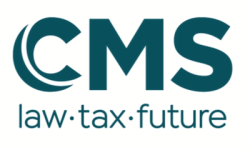
Why structuring your debt strategy through a securitisation vehicle in the Grand Duchy of Luxembourg?
Introduction
The Grand Duchy of Luxembourg stands out as one of the leading financial hubs for structuring asset managers’ debt strategies through securitisation structures.
Indeed, it maintains a pioneering role in the credit financing landscape by reinforcing and updating its legal framework in line with the latest market trends.
One major change was the 2022 amendments to the law of 22 March 2004 on securitisation (the Luxembourg Securitisation Law) [1], which made securitisation a much more flexible and attractive regime, placing Luxembourg on the same playing field than the most important EU securitisation jurisdictions like Ireland.
Core benefits of the Luxembourg Securitisation Law
Flexible methods of setting up a securitisation vehicle and legal forms
The Luxembourg Securitisation Law allows for the set-up of securitisation vehicles (SV) either as securitisation companies or securitisation funds managed by a management company.
SVs in the form of a company may be set up as a tax-opaque corporate entity, such as public limited liability companies (société anonyme – SA) and private limited liability companies (société à responsabilité limitée – Sàrl), or tax-transparent partnerships, such as a special limited partnerships (société en commandite spéciale – SCSp).
On the contrary, securitisation funds do not have legal personality (ergo tax transparent) as they are portfolios of assets managed by a Luxembourg management company. They can be structured either as a co-ownership of their investors or as a fiduciary estate where the management company holds the securitised assets as fiduciary property, which will be segregated from its own assets.

“The Luxembourg Securitisation Law allows for the set-up of securitisation vehicles (SV) either as securitisation companies or securitisation funds managed by a management company.”
Possibility of creating compartments
The Luxembourg Securitisation Law allows for the set-up of multiple compartments, permitting the segregation or so-called ring-fencing of assets and liabilities in each of the independent compartments of the vehicle. This possibility of creating separate compartments within an SV is almost unique in continental Europe and triggers a significant reduction of costs as well as formalities for multiple or repetitive transactions initiated by the same originator and/or arranger.
Regulatory supervision
SVs may be regulated or not. The key factor is the access to funds from the public. If an SV makes offers of financial instruments to the public on a continuous basis (i.e. more than three times during one financial year), then it will need to obtain a license granted by the Luxembourg regulatory authority, the Commission de Surveillance du Secteur Financier (the CSSF).
However, if the SV is primarily engaged in private placements of financial instruments and occasional public offerings (subject to the relevant conditions), this authorization will not be required.
Risks that can be securitised
Unanimously, one of the major advantages of Luxembourg’s Securitisation Law is that any foreseeable income or risk stream can be securitised. Added to this, assets that will arise in the future can also be part of a securitisation transaction. Some of the assets that may be securitised are those listed below:
- Fixed income debt instruments;
- Non-fixed income debt instruments;
- Beneficiary shares;
- Shares; and
- Corporate units or partnership interests.
Multiple ways of financing an SV
The Luxembourg legal framework being quite flexible permits the financing of the SV through a multitude of ways including, inter alia, the issuance of financial instruments including all types of debt securities such as bonds, notes, certificates in registered, bearer or dematerialised form, options, warrants, futures conferring the right to acquire shares, or any contracting instrument evidencing claim rights such as loans or promissory notes. It is also possible for an SV to be financed through equity securities, and/or beneficiary shares.
Active management of CLOs and CDOs
Under Luxembourg’s recently amended Securitisation Law, SVs, when issuing financial instruments through private placement, are permitted to actively manage pools of risks, consisting of debt securities, debt financial instruments or claims. This change expanded the scope of the Luxembourg debt market by welcoming the so-called collateralised loan obligations (CLOs) or collateralised debt obligations (CDOs).
“The Luxembourg legal framework being quite flexible permits the financing of the SV through a multitude of ways including, inter alia, the issuance of financial instruments including all types of debt securities such as bonds, notes, certificates in registered, bearer or dematerialised form, options, warrants, futures conferring the right to acquire shares, or any contracting instrument evidencing claim rights such as loans or promissory notes.”
Statutory subordination for different types of financial instruments
The Luxembourg Securitisation Law provides for the subordination of different types of debt and equity instruments issued by an SV. The instruments issued by an SV in corporate form are classified in the following order, starting from the senior:
- Claim subordination provision;
- Non-recourse provision;
- Non-petition provision; and
- Non-seisure of assets.
unless the articles of incorporation, the management regulations or any agreement entered into by the SV may contain provisions which define differently the rank of the rights of investors and creditors.
Favorable tax regime
The tax benefits provided by the Luxembourg Securitisation Law and Luxembourg’s tax framework constitute one of the most crucial elements in selecting this as the ideal jurisdiction for setting asset managers’ debt strategies.
Tax-opaque SVs (SA or Sàrl) are fully taxable and subject to corporate income tax, municipal business tax and an employment funds’ contribution (hereafter, income taxes) in Luxembourg (resulting in an aggregate rate of 24.94% in Luxembourg City for 2024) .
However, tax-opaque SVs benefit from a special tax deduction right pursuant to which commitments (which are generally considered to include any dividends and interest charges) vis-à-vis shareholders and creditors are generally considered as operating expenses and thus are tax deductible (except if specific rules restricting such deduction apply, e.g. interest deduction limitation rules, or interest due to investors in EU non-cooperative or “blacklisted jurisdictions”).
SVs are exempt from net wealth tax (except for the annual minimum net wealth tax, which generally amounts to EUR 4,815).
Dividend distributions and interest accrued or paid by tax opaque SVs is not subject to withholding tax in Luxembourg (except for certain interest payments made to Luxembourg tax resident individuals).
With regards to value added tax, qualifying management services received by an SV incorporated in Luxembourg are exempt. Generally, SVs are not obliged to register for value added tax purposes in Luxembourg except when receiving VAT taxable services from abroad, namely accounting or legal services.
Furthermore, tax-opaque SVs are in principle fully entitled to benefit from more than 80 double tax treaties that Luxembourg has signed and are currently in force.
SVs under the partnership form (SCS or SCSp) are in principle tax transparent and are therefore generally not subject to income taxes, nor to net wealth tax in Luxembourg. This is subject to Luxembourg “reverse hybrid” rules being applicable in relation to income taxes.
There is no WHT on profit distributions or interest accrued or paid by an SV in the form of a partnership (except for certain interest payments made to Luxembourg tax resident individuals).
Value added tax effects are in principle the same as for tax opaque SVs. Such vehicles are in principle not entitled to double tax treaty benefits.
Finally, although the Securitisation Law allows for the creation of compartments, this is disregarded from a tax perspective, meaning that the SV is considered as a single tax payer.
Increased investor protection
Ensuring increased investor protection is one of the most significant aspects of the Luxembourg Securitisation Law. The bankruptcy remoteness principle separates securitised assets from any insolvency risks of the SV or originator, service provider and all other parties involved.
Therefore, in the event of the bankruptcy of the originator or of the services entrusted by the SV with the collection of cash flows from the assets, the Luxembourg Securitisation Law stipulates that the SV is entitled to claim the transfer of ownership of the securitised assets and any cash received on its behalf before the opening of liquidation proceedings.
Also, the Luxembourg Securitisation Law allows for contractual provisions that are valid and enforceable and which aim to protect the SV from the individual interests of involved parties, consequently enhancing the SV’s protection as follows:
- Claim subordination provision;
- Non-recourse provision;
- Non-petition provision;
- and Non-seisure of assets.
“Ensuring increased investor protection is one of the most significant aspects of the Luxembourg Securitisation Law. The bankruptcy remoteness principle separates securitised assets from any insolvency risks of the SV or originator, service provider and all other parties involved.”
In addition, the Luxembourg Securitisation Law provides that assets are exclusively available to satisfy investors’ claims on an SV or a compartment in case of several compartments, and to satisfy creditors’ claims in respect of those assets. Thus, compartment segregation prevents insolvency contamination between different compartments and provides limited recourse to the assets of a given compartment only.
Conclusion
Luxembourg is undoubtedly your key European gateway to structuring your next securitisation project, offering a wide range of benefits including, inter alia, an array of possible corporate forms, flexible financing methods, the possibility to actively manage a debt portfolio under certain conditions, new rules on the creation of compartments and an attractive tax regime.
Do not wait any longer to get your project started! Get in touch now with the Capital Markets experts Aurélien Hollard, José Ocaña or Stamatina Stylianopoulou as well as our securitisation tax aspects specialists: Frédéric Feyten, Alejandro Dominguez and Pierre George now.
1 https://www.cssf.lu/wp-content/uploads/L_220304_securitisation.pdf
Authors

Aurélien Hollard
Partner
CMS Luxembourg

Stamatina Stylianopoulou
Associate
CMS Luxembourg

Fréderic Feyten
Managing Partner
CMS Luxembourg





